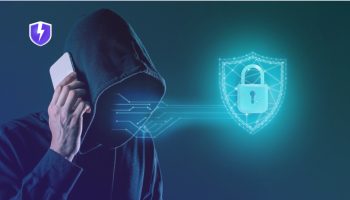Did you know that a 5G network is going to be about 100 times faster than a 4G network? Imagine downloading a full HD movie in just a few seconds instead of minutes. It’s not about the speed only; with this new technology, it will even give more reliable and stable services. With the rapidly increasing demand for more rapid and seamless internet services, 5G is expected to have a big impact on how we use devices and the internet.
Rise of 5G Technology
5G, standing for the fifth generation of mobile networks, strives to offer higher data speeds, lower latency, and the ability to connect more devices at the same time. A report by the Global System for Mobile Communications Association (GSMA) estimated that by the year 2023, an approximate 1.5 billion people around the globe will enjoy access to 5G networks. The number is fast expected to double due to more countries adopting this new advanced technology.
5G technology rides on the wings of higher-frequency waves; hence, it can carry more data at faster rates. However, these high-frequency waves do not go long distances and thus require many more cell towers and infrastructure to achieve coverage. All said and done, 5G brings with it benefits that will spur innovations such as self-driving cars, smart cities, and advanced applications of health care, among others.
What is a VPN?
VPN stands for Virtual Private Network—a service that enables a secure, private connection over the internet. It’s sort of like a tunnel that hides your information from being viewed. If you’re using a VPN, your internet traffic is encrypted, which makes it much harder for hackers or literally anybody to see what you’re up to online. That is quite important, given how unsafe public Wi-Fi is.
Why Use a VPN with 5G?
Despite the incredible speed and connectivity that 5G offers, it does not inherently wrestle the corresponding security and privacy concerns. This is where a VPN comes into play: using a VPN while on 5G will ensure your data remains secure and private on the fastest and highly connected network. Why combine 5G with VPNs? Augmented security. As the connection of devices gains momentum via 5G, cyber threats also increase. A VPN encrypts your traffic, adding an extra layer of security. Privacy. While using 5G networks, a lot of data might be collected about your online activities. By using a VPN, you hide your real IP address and location, consequently protecting your privacy. 3. Bypass Censorship: VPN lets you access the contents that might be regionally banned by changing your geographic locations.
The Speed-Security Tradeoff
What concerns you, however, about using a VPN in combination with 5G is the hit on speed. Since VPN reroutes your connection through their servers and encrypts the data, it could create some sort of delay thereby slowing down your Internet connection. This may sound counterproductive considering 5G revolves around the aspect of speed. But how much of a slowdown in the overall Internet speed is experienced depends on several things:
- Quality of VPN: All VPN services are not equal or meant for all uses. A much better, ideally enhanced premium VPN service will carry the possible capabilities to meet high demands that a high-speed network like 5G warrants compared to an option that is free or otherwise low quality.
- Server Location: The physical distance between you and the VPN server can affect speed. If you choose a server closer to your real location, delays are more likely to be minimized.
- Level of Encryption: The higher the encryption level, the higher the security, but the connection will be slower. Balancing security and speed is very important.
Tips To Strike Balance Between Speed and Security
If you wish to make the best of both 5G and VPNs, here are few things you should consider:
- Get a Quality VPN Service: Find VPNs with high-speed servers and great encryption.
- Select the Nearest Server: Choosing the nearest server can help you in maintaining higher speeds.
- Device Settings Optimization: Ensure your device is well optimized for performance post closing any apps and unrequired updates that generally eat into the bandwidth.
- Software Updates: Ensure all your software, including VPN software, remains updated so as to have the latest security features and optimized performances available.
Real-World Application of 5G and VPNs
The practical application of 5G and VPNs lies in many areas. For instance, remote workers have secure and fast internet connections where they work, hence securing their data and company information. Gamers can get to experience fast speeds for their games without compromising the system for breaches in privacy. Even healthcare professionals use this combination in order to transmit sensitive patient information on networks that are very fast.
Conclusion
Navigating this speed-security tradeoff between 5G and VPNs might look complex, but it is something important for ensuring fast and secure internet access. As we are emerging into 5G technology, helping protect our data and privacy with a reliable VPN will, therefore, make everything possible in our digital world. Given this knowledge, we are able to weigh up the pros and cons and make good choices for taking the best out of two worlds.

